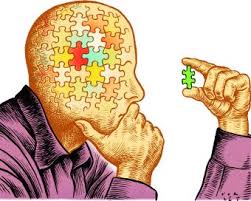I have had a series of conversations lately,
and I have to write them out. One was at a PWPA meeting, the session focusing
on research (papers) with aligned discussions about teachers working with
librarians. The conversation went a little sideways in illuminating ways, one
of the present librarians expressing with verve her frustration over being held
to account to make sure that students were mastering
the nationally adopted objectives for librarians: 6 or 7 reasonable goals that
somehow have in the minds of the librarians been converted into objectives that
the librarians through assessments were required to prove students in their
universities have met.
The librarians were teaching lessons in the
FYW classes with friction against the teachers because the lessons seemed disconnected
from what the teachers were doing. The speaking librarian pointed out that she
was being held to account; that her tenure (she felt) was linked to her ability
to demonstrate her effectiveness(metaphor here).
My friend, Val, sitting next to me, said the
tail’s wagging the dog. Ok—here’s where I’m going. The system, in its
imperative to reproduce the existing social structure (a set of privileges), drowns
players (actually, I think it’s more like waterboarding) so that they are just
fighting for air to the point that they can’t think critically (forgive me—read
my chapter in Going North, Thinking West
on critical thinking) about their immersion.
I have had another related experience—and I
ask for forgiveness here, because I’m imagining I know something that seems
like contrarian knowledge. I don’t want to go too deeply into this, but let’s
just say within a certain group, I seem to be ruffling feathers. This
conversation can go in several directions, but I’m aiming for one.
One of the members of the group brought up
Kuhn and thought experiments—this is also connected to Rawls, whom I seriously
don’t like to read. A thought experiments invites “thinkers” to imagine
everything they think they know they don’t know. So let’s try this:
In FYW courses (and more broadly, in writing
studies), our strategies for teaching have been overdetermined by some assumptions
that if looked at from another perspective seem, well, like believing the earth
is flat because that’s what it looks like (or maybe like giving us a job).
So let’s try this as a thought experiment:
1. Research
papers and all the citation stuff (and plagiarism junk) is simply wasted
instruction, helping to create a negative attitude toward writing in students
and a negative attitude toward students’ abilities to write. Let’s imagine: in
their post collegiate lives, most students will not be writing these weird
things. They’ll never be citing or creating works cited again. And so …..?
2. Let’s
imagine that “argument” as a pure genre is also a discourse form in which
students after they graduate will never again write. Any yet, it’s the dominant
genre in FYW programs and in assessment protocols. Can we do a little historiography and excavate how this “rhetoric”
came to be? (as well as disadvantaging social groups not trained to this
middle-middle- and upper-middle class way of thinking and writing? [another of
my chapters in Going North)
3. Let’s
imagine that we don’t as teachers have to prove to external stakeholders that
we have clear (let’s call this the positivist assumption) objectives and assessment
structures that prove or disprove that we are or are not meeting them; i.e.,
that because we are writing teachers, we can be trusted to do our job.
4. And
let’s imagine that as writing teachers, we are devoted to imbuing in our
students a positive attitude toward writing—that as a first among equals (Elliott, 2016 or so), that
is what we are teaching—and not doing by the research and argumentative
structure agenda.
5. And
that we do not have to teach our students how to survive writing assignments
teachers in other disciplines (themselves drowning) prescribe (let’s imagine that
instead of the 20 page research papers, which they hate to read, they use
writing as a way of learning and communicating).
6. And
let’s imagine that attitude toward writing counts (largely ignored in almost
all academic articles about teaching writing).
7. Let’s
imagine that we want our students to be writers for life, not just for getting
through what we got through--and so think they need to get through.
A thought experiment. The point being,
everything we thought was true wasn’t, one of the better definitions of
critical thinking (John McPeck, Critical
Thinking and Evaluation.)
Link to my latest song--kind of fits this post
Off the Trail
Link to my latest song--kind of fits this post
Off the Trail
